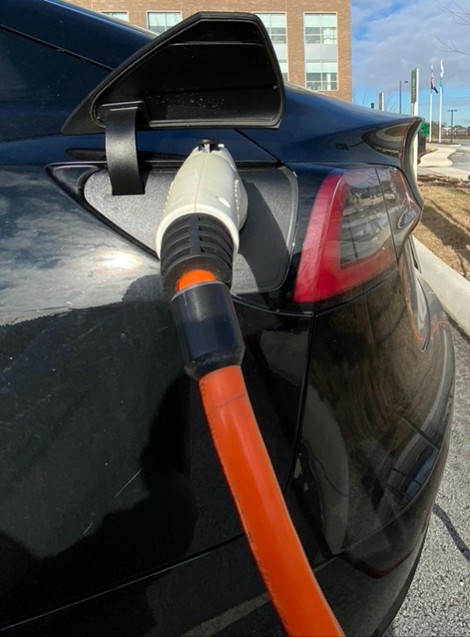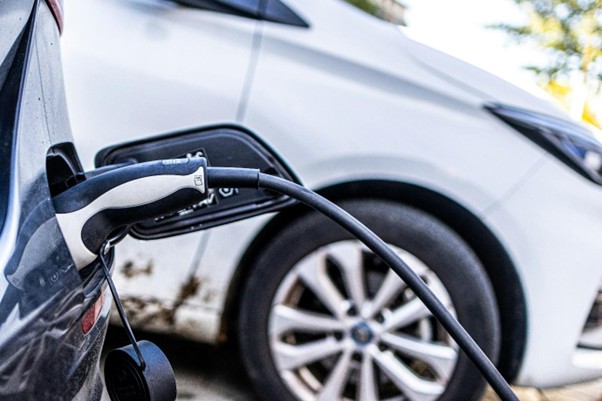With the spread of electric vehicles (EVs), the charging infrastructure for these vehicles has gained significant importance. AC charging, one of the methods used to charge the batteries of electric vehicles, offers a cost-effective and practical solution for both home users and commercial businesses.
What is AC Charging?
AC charging is an alternating current (AC) system used to charge the batteries of electric vehicles. In AC charging, the alternating current from the electrical grid must be converted to direct current (DC) before it can be used to charge the vehicle's battery. The alternating current from the grid is converted to direct current (DC) by the onboard charger located inside the vehicle and then delivered to the battery. This conversion process ensures that the vehicle's battery is charged correctly.
AC charging typically operates at lower power levels, resulting in a longer charging time. However, this method offers a highly efficient and economical solution for long-term parking situations at home or the workplace. This method, which is the primary energy source for electric vehicles, is generally carried out via AC charging stations found in homes and public areas.
What is an AC Charging Station?
An AC charging station consists of charging sockets that provide energy to electric vehicles using alternating current. AC charging sockets are also known to electric vehicle users as slow charging. These stations are widely preferred for both individual and corporate use. You can find these charging points in many areas such as shopping malls, parking lots, hotels, residential complexes, and workplaces.

An AC vehicle charging station typically provides service at power levels such as 3.7 kW, 7.4 kW, 11 kW, or 22 kW. You can find the power levels of AC charging sockets on ChargeIQ. These stations are ideal for users who leave their vehicles connected for an extended period. The charging time varies depending on the vehicle and the power output but is generally completed within 3 to 10 hours.
The Importance of AC Charging for Electric Vehicles
The batteries of electric vehicles are charged with direct current (DC). However, the energy from the electrical grid is usually in the form of alternating current (AC). Therefore, AC charging stations enable the charging of the battery by converting the AC power from the grid into the DC power appropriate for the vehicle's battery.
AC charging is an ideal method, especially for long-term parking at home or work. Electric vehicle owners can connect their vehicles to AC charging stations overnight and start their day with a fully charged battery. This method is a very efficient and economical solution for providing the amount of charge needed for daily use.
How Long Does AC Charging Take?
The charging time depends on the power of the AC station and the vehicle's battery capacity:
- 3.7 kW: Approximately 10–12 hours for a full charge in vehicles with small batteries.
- 7.4 kW: 6–8 hours for medium-sized batteries.
- 22 kW (three-phase): 3–4 hours in compatible vehicles.
While AC charging stations are generally used for overnight charging at home, they also offer the opportunity to efficiently charge vehicles during the day at work or while shopping at the market.

Advantages of AC Charging for Electric Vehicles
Widespread Access and Easy Installation
AC charging stations can be commonly found in homes, workplaces, and public areas. Additionally, the installation of these stations is generally simpler and faster, which provides users with easy access to charging infrastructure.
Battery-Friendly Charging Speed
Since AC charging operates at lower power levels, it prevents the batteries from overheating and preserves battery life. This is a significant advantage for the long-term use of electric vehicles.
Timing Flexibility
Electric vehicle owners can charge their vehicles overnight or during long-term parking using AC charging stations. This provides flexibility in users' daily schedules and does not prevent them from using their vehicles during the charging process.
AC charging and AC charging stations offer economical, efficient, and accessible charging solutions for electric vehicle owners. With the increasing popularity of electric vehicles, strengthening the AC charging infrastructure is of great importance in supporting sustainable transportation. Electric vehicle owners can adopt environmentally friendly transportation solutions by choosing AC charging stations according to their daily usage needs and budgets.









